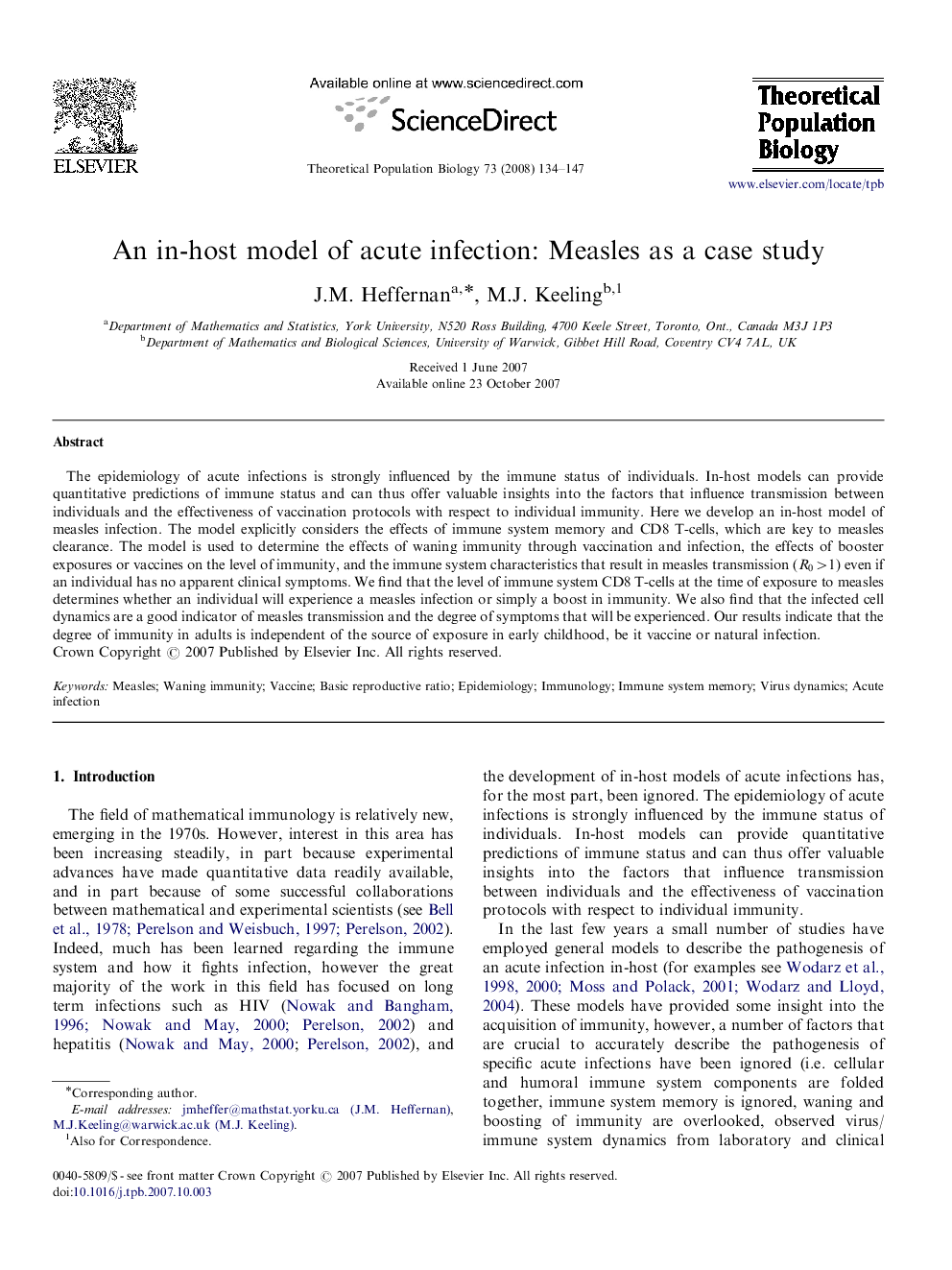| Article ID | Journal | Published Year | Pages | File Type |
|---|---|---|---|---|
| 4502738 | Theoretical Population Biology | 2008 | 14 Pages |
The epidemiology of acute infections is strongly influenced by the immune status of individuals. In-host models can provide quantitative predictions of immune status and can thus offer valuable insights into the factors that influence transmission between individuals and the effectiveness of vaccination protocols with respect to individual immunity. Here we develop an in-host model of measles infection. The model explicitly considers the effects of immune system memory and CD8 T-cells, which are key to measles clearance. The model is used to determine the effects of waning immunity through vaccination and infection, the effects of booster exposures or vaccines on the level of immunity, and the immune system characteristics that result in measles transmission (R0>1R0>1) even if an individual has no apparent clinical symptoms. We find that the level of immune system CD8 T-cells at the time of exposure to measles determines whether an individual will experience a measles infection or simply a boost in immunity. We also find that the infected cell dynamics are a good indicator of measles transmission and the degree of symptoms that will be experienced. Our results indicate that the degree of immunity in adults is independent of the source of exposure in early childhood, be it vaccine or natural infection.
